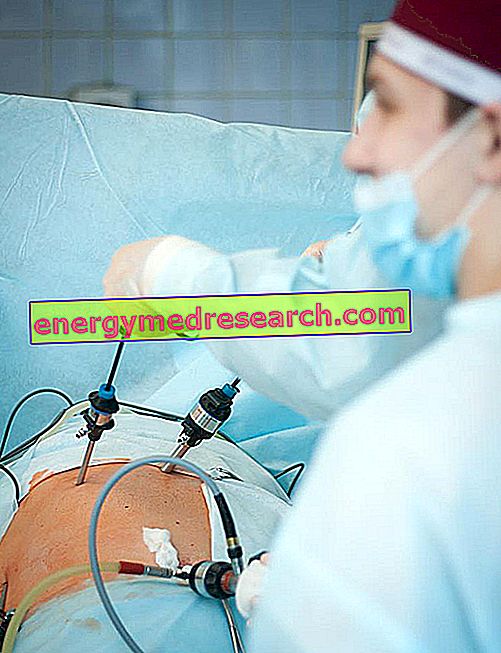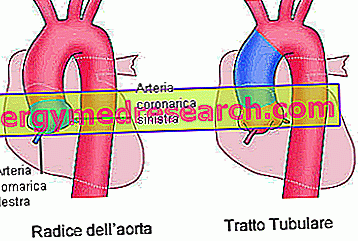
What is Tepadina?
Tepadina is a powder for solution for intravenous infusion, containing the active substance thiotepa.
What is Tepadina used for?
Tepadina is used in combination with chemotherapy drugs (drugs to treat tumors) in two ways:
as a "conditioning" (preparation) regime prior to transplantation of haematopoietic progenitor cells (the cells that generate blood cells). This type of transplant is used in patients who need hematopoietic cell replacement, as they suffer from haematological diseases (eg tumors, including leukemia) or diseases that cause red blood cell deficiency (eg thalassemia or sickle cell anemia) );
during treatment of solid tumors when high-dose chemotherapy is required followed by transplantation of hematopoietic progenitor cells.
Tepadina can be used for the transplantation of cells taken from a donor and those taken from the patient's own body.
Since in the European Union (EU) the number of patients subjected to this type of conditioning and this transplant is low, on 29 December 2007 Tepadina was declared an "orphan medicine" (a drug intended for the treatment of rare diseases).
The drug can only be obtained with a prescription.
How is Tepadina used?
Tepadina therapy should be supervised by a doctor experienced in treatments performed before a transplant. The medicine is given as an infusion for 2-4 hours in a large vein.
The dose of Tepadina depends on the type of haematological disease or solid tumor from which the patient suffers, the type of transplant to be performed as well as the patient's body surface area (calculated based on height and weight). In adults the daily dose varies from 120 to 481 mg per square meter (m2) and should be administered for up to five days before transplantation. In children the daily dose varies from 125 to 350 mg / m2 and should be administered for up to three days before transplantation. For more information, please refer to the summary of product characteristics (included with EPAR).
How does Tepadina work?
The active substance in Tepadina, thiotepa, belongs to a group of medicines called "alkylating agents". These substances are "cytotoxic", ie they eliminate cells, especially those that reproduce rapidly, for example tumor or progenitor cells (or stem cells), ie cells that can develop into different cell types. Tepadina is used with other drugs before transplantation, in order to eliminate abnormal cells and hematopoietic cells present in the patient. This allows the transplantation of new cells, as it creates space for the new cells, reducing the risk of rejection.
Thiotepa has been used in the European Union since the late 1980s to prepare patients for hematopoietic cell transplantation.
How has Tepadina been studied?
Since thiotepa has been used for many years in the EU, the company presented data extracted from the published documentation, including 109 studies conducted on 6 000 adults and 900 children, suffering from hematological diseases or solid tumors, subjected to cell transplantation hematopoietic. The studies took into consideration: the number of patients with a successful transplant, the time it took for the disease to recur and the duration of patient survival.
What benefit has Tepadina shown during the studies?
According to published studies, the use of thiotepa in combination with another chemotherapy drug produces positive results in the treatment of adults and children with hematological diseases and solid tumors. Thiotepa helps eliminate the patient's own blood-forming cells, allowing for an effective transplantation of new cells, improved survival and a lower risk of the disease recurring.
What are the risks associated with Tepadina?
The most common side effects associated with the use of Tepadina in combination with other drugs are: infections, cytopenia (deficiency of cells in the blood), transplant disease against the host (when the transplanted cells attack the body), intestinal dysfunctions, hemorrhagic cystitis (hemorrhage and inflammation of the bladder) and inflammation of the mucous membranes (inflammation of the moist surfaces of the body). For the full list of side effects reported with Tepadina in adults and children, see the Package Leaflet.
Tepadina must not be used in people who may be hypersensitive (allergic) to thiotepa or any of the other ingredients. It should not be used in women who are pregnant or nursing. It must not be used together with the yellow fever vaccine or vaccines that use live bacteria or viruses.
Why has Tepadina been approved?
The Committee for Medicinal Products for Human Use (CHMP) has found that the use of the active ingredient (thiotepa) of Tepadina has already been established for some time. This means that it has been used for many years and that there was sufficient information on its effectiveness and safety. The committee decided that, based on available published information, Tepadina's benefits outweigh its risks and recommended that it be given marketing authorization.
More information on Tepadina
On March 15, 2010, the European Commission issued a marketing authorization for Tepadina to Adienne Srl, valid throughout the European Union. The marketing authorization is valid for five years, after which it can be renewed.
For a summary of the opinion of the Committee for Orphan Medicinal Products regarding Tepadina, click here.
For the full EPPAR for Tepadina, click here. For more information on Tepadina therapy, read the package leaflet (also part of the EPAR).
Last update of this summary: 01-2010.



